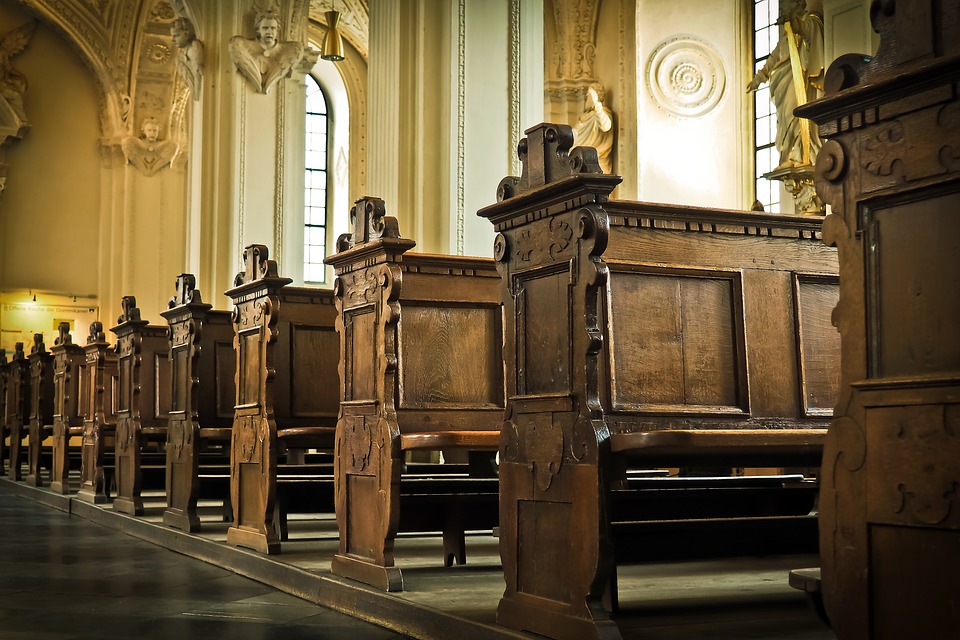opposite day: why sunday mornings (and the mondays that follow) matter
Yesterday many people gathered together in churches and chapels and cathedrals and living rooms around the world (and some of us will carve out space to spend time with God alone by ourselves). We thought about why following God matters. We contemplated what God has called us to and why. We talked about words that are woven through Scripture like bright threads that recur in a tapestry. We heard, contemplated and repeated words like Love and Grace and Mercy and Hope.
And we agreed with them.
We agreed that yes, we're called to love and be loved. We're called to give and receive grace. We nodded our heads to the reminder that, "Blessed are the merciful." We read verses that reminded us of the hope we have in Jesus.
The question is: Why did God call us to those things specifically? And how will we translate Sunday words into Monday actions?
Why did God call us to Love and Grace and Mercy and Hope?
Because we often experience and practice the opposite.
Instead of love, we're fearful, anxious, suspicious and afraid. Instead of including, we tick off all the reasons why others don't belong. Instead of embracing, we exclude.
When it comes to grace, we often talk about it -- and even name churches after it -- but many of us assent to the word without acknowledging that grace exists because we need it. Grace exists because we make mistakes, we fall short, we are a less-than-ideal version of the selves God created us to be. And grace exists because others make similar choices that wound and maim and mar us. Grace exists because we need to experience and extend it. We need to forgive and be forgiven.
Mercy exists because it's easy for us to be tit-for-tat, exacting eye-for-eye kind of judgments when we perceive that people have acted unfairly or unjustly to us. Mercy exists because when we're feeling threatened, words that are angry, hateful, hurtful and sarcastic flow more quickly out of us than words that are patient and gentle and loving and kind.
Hope exists because we're often driven to despair. We often look at the world around us and are tempted to think that the evil and brokenness and hopelessness we see is all their is. We forget that our world is not a closed system -- that God has and does and will infuse desperate situations with unbelievable peace and light.

Truly understanding Love, Grace, Mercy and Hope begins with first acknowledging why God calls us to them over and over and over again: because we tend to do the opposite.
And then, once we realize how much we need to love and be loved, how much we need to experience and express grace, how much our hearts pull us away from being merciful, and how our first response to the world is often despair, the question that follows is, "How do we translate these words into actions?"
This morning we woke up to horrible headlines happening half-way around the world. We woke up to local news that tells us tragic stories. Today, we'll get phone calls from friends and family members that threaten to pull us into relational drama. We'll wake up to bodies that ache, hearts that hurt, spouses who have wounded us, empty rocking chairs, half-empty beds, co-workers who annoy us and relatives we can't stand.
And what it means to translate words into actions is to remember that Sunday morning calls us to Monday litmus tests: not passively sitting in beautiful sanctuaries reciting Scriptures and creeds as light streams through stained glass windows, but actively walking into situations that are dark and painful and messy. Sunday morning lessons call us to Monday morning practices. And the next six days test whether we really believe what we said we did.
Sunday mornings call to Opposite Days on Monday, Tuesday, Wednesday, Thursday, Friday and Saturday.
On Opposite Days, we wake up to remember to love not only our friends, but to do the hard, costly, painful work of loving and blessing and praying for our enemies, too.
We wake up to remember to remember why people belong instead of thinking of reasons to exclude them from our country, our social circles, and our familiar spaces.
We wake up to remember that God calls us to embrace, not to exclude.
We wake up to run towards people in peril to rescue them instead of, out of fear, running away.
On Opposite Days, we wake up to remember that grace exists because we need it. We're not better than anyone else. We make intentional and unintentional mistakes -- and so do the people around us. We experience the grace of forgiveness deep in our souls, and then express it to the people who wound us as we have wounded God.
On Opposite Days, we wake up to remember the words of Jesus: that the people of God are called to be merciful. People who look not for ways to judge, but for ways to be gentle. Not for conversations in which we insist that we're right, but for interactions in which we express kindness. Not for ways to punish people, but for ways to heal and help them.
On Opposite Days we wake up to remember that in spite of all the brokenness we see in our world, God's love is streaming through the cracks. Death and darkness and evil don't get the final word. LOVE is higher, stronger, wider and deeper than anything else in all seen and unseen world.
Let's remember today the Divine Sacrements of Love, Grace, Mercy and Hope. Let's receive them with deep humility that they exist because we need them. Let's remember that the way we practice them today determines whether we really believe what we said yesterday. Let's remember to observe every day as an Opposite Day where we counter the darkness with God's unending Light.